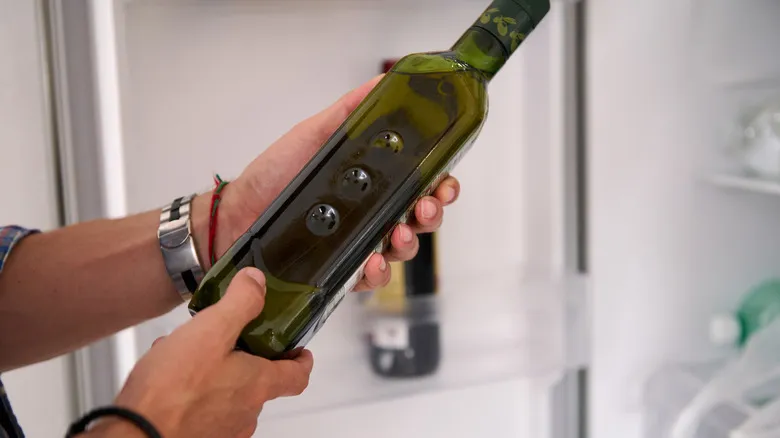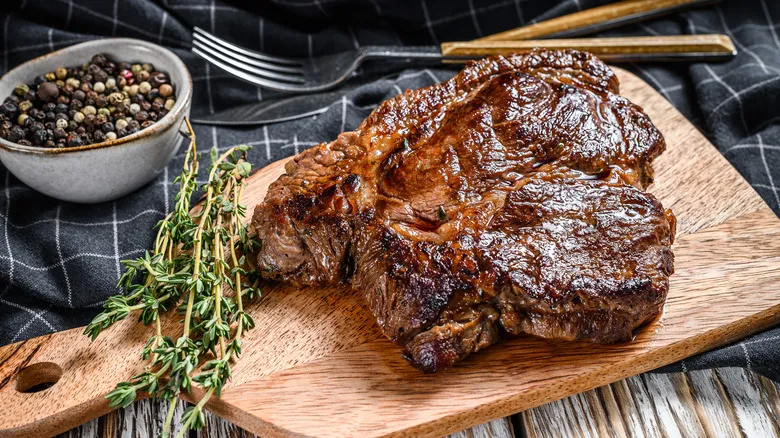Tips for peak olive oil longevity
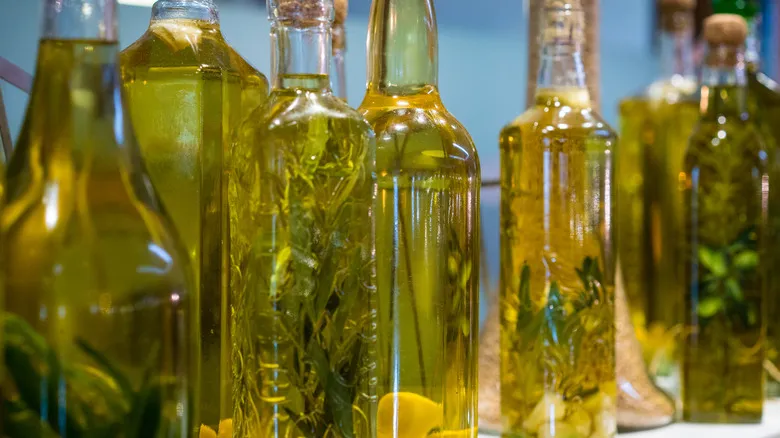
Whether you prefer storing olive oil in the fridge or the pantry, proper storage is essential for preserving its flavor and nutritional benefits. Temperature is the most challenging aspect to manage. Olive oil can become cloudy at temperatures below 50 degrees Fahrenheit and typically solidifies at temperatures below 36 degrees Fahrenheit, while it flourishes around 68 degrees Fahrenheit. Therefore, it's best to keep it at room temperature, provided the room isn't too warm. Olive oil prefers dark, cool environments. Using a tightly sealed, opaque container can help prevent oxidation, which can make the oil go rancid. If you're purchasing in bulk, consider transferring it into smaller bottles to reduce air exposure.
For short-term storage, such as taking a jar of oil and vinegar to work for your salad, you can skip the fridge to avoid solidification. Also, remember that the type of container you choose for olive oil is important. A small, dark glass or stainless steel bottle is preferable to clear glass, as it protects the oil from light exposure that can diminish its flavor. For that special bottle of extra virgin olive oil your in-laws brought back from Italy, we recommend storing it in the fridge to keep it fresh for special occasions. Refined olive oils, which are often used for high-heat cooking, are more stable and can be safely stored in the pantry.
In summary, use the fridge wisely: only for long-term storage or if you rarely use the oil. For everyday cooking, a cool, dark pantry is your best friend. Your taste buds and your wallet will appreciate it.
Recommended

The Expert Trick That Keeps Nacho Cheese Sauce Melty
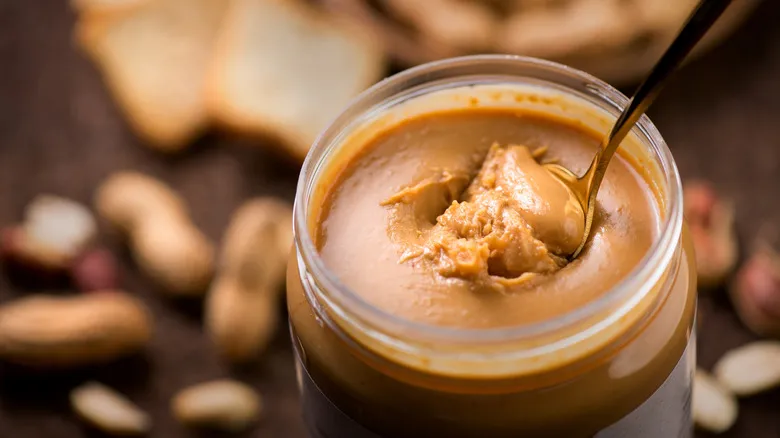
Should You Be Storing Your Peanut Butter Upside Down?
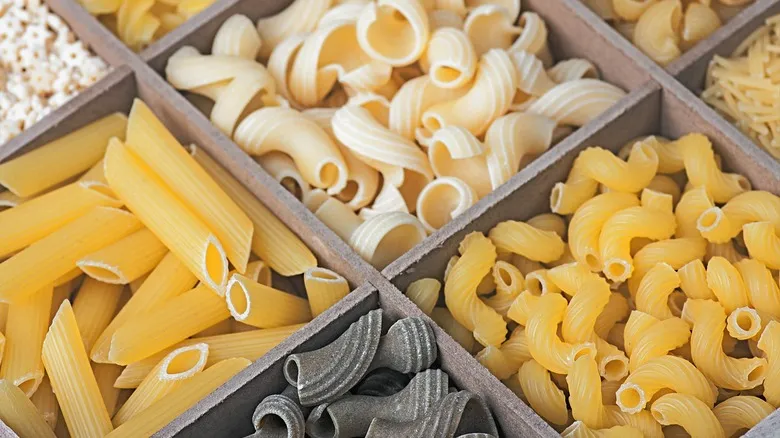
You Can Store Dried Pasta In Its Box Under One Condition

12 Things You Didn't Know Your Kitchen Shears Could Do
Next up

